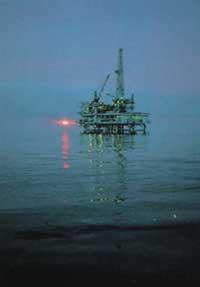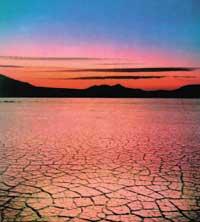Global warming: climate change
What is global warming?

Scientists of the world have spent the last 100 years collecting, analyzing and carefully verifying data on earth temperature. Of course, they are very varied data, but the last ones that have been collected present incredible results:
- The 10 hottest years in history have been the last 15 years.
- The 1990s has already been warmer than the 1980s, the warmest with a difference of 0.1°C.
- In some U.S. territories, temperature increases of 1,1-2.0°C have been measured during this century.
- Since they started doing reliable tests, XIX. Since the second half of the 20th century the earth's surface has increased by 0.3 to 0.6°C.
Until very few years, the researchers were not completely sure of the cause of these temperature changes. They could not clearly say whether this climate change is natural or because of human activity.

All these doubts were finally resolved in autumn 1995. Then scientists and the International Commission on Climate Change (Intergovernment Panel on Climate Change, the most important agency responsible for climate change) began to resolve the doubt and question raised so far. The joint report reached a unique consensus: He collected the perspectives of more than 2,500 scientists, economists and risk analysts.
For the first time, human influence on climate change was undoubtedly underlined. The increase in temperature we have had in the last century and the phenomena it has caused were not possible. All evidence showed that man has accelerated global warming.
Causes of Warming
Earth's climate is the result of interactions between atmospheres, seas, land masses and all living organisms that are very complex. All these elements support daily sun warming. This heat would radiate back into space if there were no equilibrium of several heat absorbing gases in the atmosphere. These gases, mainly carbon dioxide, nitrogen oxide and methane, act as a natural greenhouse, keeping below the atmosphere the exact amount of heat needed to maintain life.

However, in the last 150 years the atmospheric concentration of these gases, especially carbon dioxide, has been increasing. As a result, it has become hotter than due trapped in the atmosphere. This is the main cause of temperature rise. Scientists have linked the increased concentration of greenhouse gases to some of human activities, especially deforestation and agriculture, such as fossil fuels (coal, oil and gas for heat and electricity generation and gasoline transport). For example, our car emits 2.5 kg of carbon dioxide per liter of burned gasoline.
Expected conclusions

Scientists have not been able to accurately determine the consequences of this warming over the next century, but most agree on some points. Some climate models indicate that the pace of global warming will be faster than ever in the next century.
The most positive estimates show that if carbon oxide (IV) concentrations double the pre-industrial level, the terrestrial surface temperature will increase between 1.0-3.5°C. These studies show that we are not far from this possible situation, as it is believed that we can double CO2 levels by 2050.
Among the possible consequences of this huge warming are:
- Damage to human health
- Imbalances in forests, seas and other habitats
- Breakdown of agriculture and trade
- Extension of deserts
- Melting of polar ice sheets, resulting in sea level rise by 15-95 cm
- Numerous unusual atmospheric phenomena

According to the 1996 report by the World Health Organization, climate change would mean an increase in diseases transmitted through insects, such as malaria. Water sources would be reduced and the rainfall regime would be modified, which would imply a greater occurrence of diseases that are contaminated with water. In addition, increased temperature can cause life-threatening climatic situations for human life.
Solutions
The main conclusion is that human activity has increased the concentration of greenhouse gases that heat the Earth. If the Earth gets too hot, human existence is in danger. We have created the problem and therefore it is up to us to seek the solution. All of us, governments and citizens, have a role.
What are you doing internationally?
In December last year, representatives of the world government met in the city of Kyoto to agree on a commitment to this in the so-called “Climate Change Treaty”. Kyoto was an important step on the road to global warming.

These negotiations have been the result of the so-called “Global Agreement on Climate Change” signed in 1992 by more than 160 States in Rio de Janeiro. The 1992 Summit proposed that industrialized states reduce their CO2 and other greenhouse gas emissions to the level of 1990. The main objective of the treaty, although the Summit had no way to run, considered reducing greenhouse gases as the main way to avoid anthropogenic interference dangerous to the climate system.
Unfortunately, States are not complying with what was agreed then, for example, the US, which accounts for 25% of the total global CO2 emission, expects that by 2000 emissions will reach 13% more than in 1990.
Conclusions

The most important step that can be taken is to reduce greenhouse gas emissions. Governments, inhabitants and businesses can collaborate on this. Governments are likely to reduce CO2: establish controls to reduce fossil fuels, promote policies for renewable energy, such as the force of sun and air, or eliminate subsidies that drive the use of coal and oil, and governments should bet more on forest conservation, as photosynthesis is the main way to eliminate CO2.
The inhabitants can reduce the need for fossil fuels and also advance some money, how? For example, using less of the car and using those that make burning better, or isolating our homes properly to spend less electricity. The same applies to companies, but on a larger scale.
It is up to us to take care of this precious world, because we have brought the Earth to this situation. But if you want to get something you have to give something in return.
We are not here to talk only about the green of the forests or the blue of the sea, but to worry about the future of the human being, and if we want to be one we have to work NOW.





